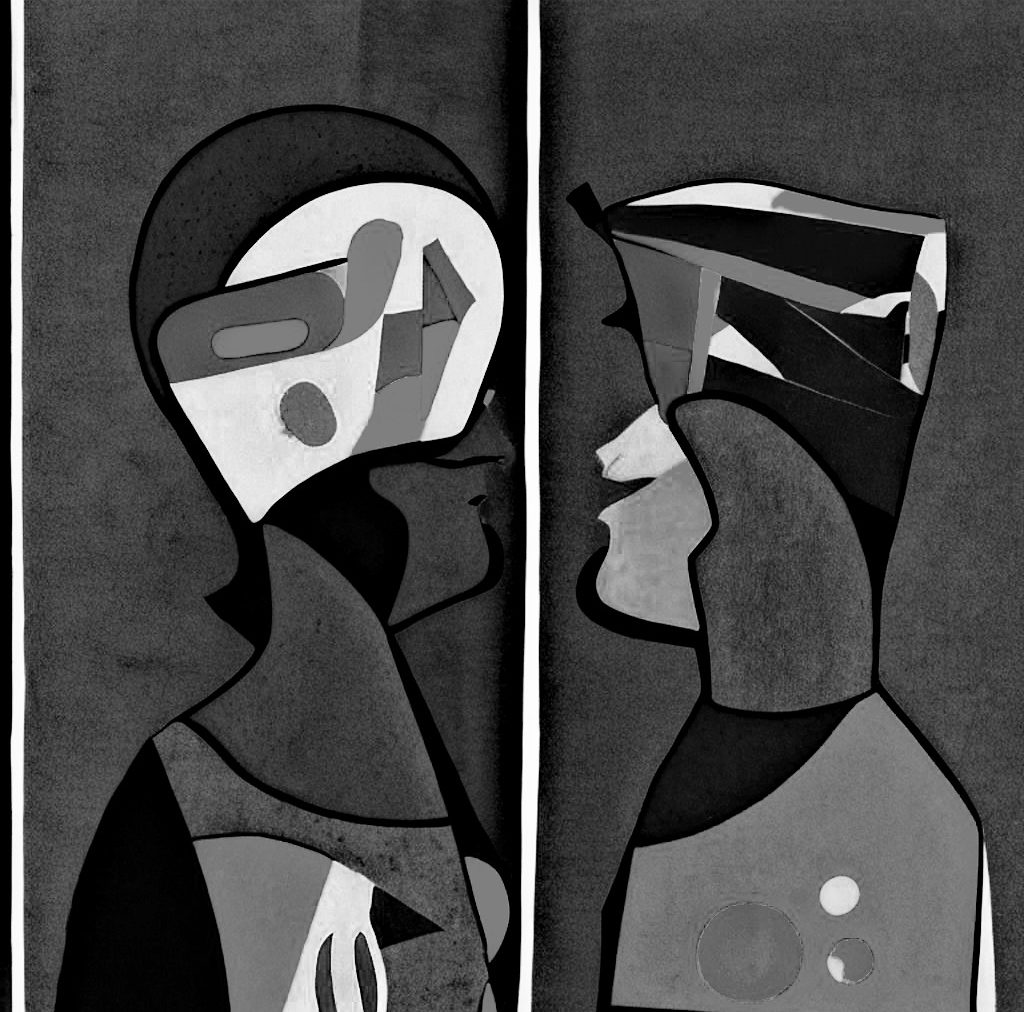For Sartre, love is impossible; love is a project that inevitably fails.
Love, for Sartre, is an endeavor to be seen by the Other as the most beloved, significant, and beautiful object. That is, to love the Other is to desire to be loved by the Other, to be seen and viewed by the Other as the most beautiful object. To love the Other is to turn oneself into an object for the Other.
Love, for Sartre, is a project, the project of making the Other see and view us in a certain way, a way that does not make us uncomfortable or alienate us.
Love is ensuring that we appear to the Other as an object, the most valuable, beautiful, and significant object.
Love is thus an attempt at making the Other see us in a way that is pre-determined, completely governed, and already decided; a way that is governed by how we want to see ourselves and how we want to be seen by the Other.
To ensure that we are constantly seen by the Other in a favorable way is to stop worrying about what the Other thinks about us and how the Other sees and views us.
To ensure that we are constantly seen by the Other in a favorable way is to ensure that the Other will neither abandon this relation nor love another one.
In this relation, we endeavor to escape the uncontrolled objectifying gaze of the Other by turning ourselves into another object, by making the Other objectify us in a certain way.
In other words, in love, our attempts at escaping the Other’s look that objectifies take place, paradoxically, by turning ourselves into an object for the Other. Our rejection of the Other’s objectifying gaze is carried out by demanding a certain gaze that objectifies, that transforms us into another object. We escape being seen as an object by turning ourselves into another object, an object that we choose, love, and value.
According to Sartre, in love, we do not only want to be seen as the most valuable, significant, and beautiful object, but also as the object from out of which value, beauty, and significance flow, the object that renders all other objects valuable, beautiful, and significant.
Sartre says that love is our endeavor to be placed “beyond the whole system of values posited by the Other”. Love is an endeavor “to place the lover as the condition of all valorisation and the objective foundation of values”, according to Sartre.
Love Is Paradoxical
Although this form of love requires that the Other sees us in a way that makes us happy and comfortable, a way that we love, govern, choose, and decide, Sartre insists that the Other must freely agree to this pre-determined and strictly governed way of seeing.
In this attempt at loving and at being loved, Sartre says, there is a paradox because it is still an endeavor to “possess a freedom as freedom”.
In other words, although the Other must see and view us in a specific way, the Other must freely decide to see us in this way, the Other’s decision must be free, it must be freely decided; a free decision to abandon all freedom to decide, all freedom to see or view differently.
In love, the Other must be enslaved by how valuable, beautiful, meaningful, and privileged we are. In love, the Other must freely decide to be enslaved; the Other must decide to abandon every possibility of free deciding.
Since love involves controlling, determining, and governing how the Other sees, views, and thinks, it is a project of depriving the Other of its otherness and radical foreignness.
The otherness of the Other must be hollowed out so that a pre-determined, governed, and decided way of seeing, viewing, and thinking could take place and hold sway.
Why Is This Project Doomed to Failure?
This form of love, this project of turning oneself into an object, into a beautiful and valuable object, eventually fails because we end up being obliged to return to being a subject again.
This inevitably happens because by enslaving the Other, the Other becomes an object for us, which in turn obliges us to return to being a subject again.
What renders this form of love even more unstable is that one will never be able to certainly know how the Other sees or views and thinks of oneself. Although this project or this form of love is specifically designed to overcome this problem, the doubt will forever remain and it will disrupt this relation, forever.
Finally, the moment at which a third party appears and begins to interact with the loving couple renders this project even more unstable and perhaps totally destructs it.
Sartre says that when a third party appears and begins to interact with the loving couple, it brings into this relation what it cannot contain, it brings a different perspective, a way of seeing that transcends the pre-determined way of seeing that the loving couple already agreed to follow.
Because this project of loving the Other, of being loved by the Other, demands a certain way of seeing and a pre-determined objectifying, the presence of another perspective, which is undecided, undetermined, and ungoverned, shows how relative, unstable, already disrupted this form of love is.
For more articles on Sartre’s philosophy, visit this webpage.

